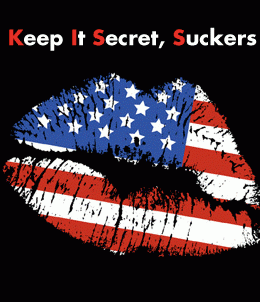© 2004-06 Rand Careaga/salamander.eps
With Permission
Making the World Safe
For Voting Machine Vendors
Michael Collins
Washington D.C.
At a New Jersey town meeting this July, Rep. Rush Holt (D-NJ) said of his bill, House Resolution 811, “It’s not my bill anymore.”
Why shouldn’t the world be safe for vendors? Microsoft in particular? After all, they pay the bills. Just let them have whatever they want and let the rest of us be thankful we’ve got jobs. This is the prevailing philosophy in Washington, DC, your capitol and the supposed heart of modern democracy.
House Resolution 811 (“The Holt Bill”) is coming up for a vote this week, word has it. The questions are stark. What will we Congress be voting for? Whose interests are represented in the final mark up of this legislation?
Voting in the United States is hardly inspirational. In fact, it’s become down right depressing for both those who follow it closely or those who keep their distance due to the dreadful outcomes in terms of legislative performance.
Let’s look at the close up. But first an acknowledgment. It’s hard arguing with those who say they wouldn’t let us vote if it made a difference because it hasn’t. It’s been eight months since the new Congress was seated and where are we? We’re still hip deep in Iraq and the Senate has done nothing to prevent the president from starting his next project, a military attack on Iran. We have no solutions to universal health insurance. and the rebuilding of New Orleans has been paid for but not begun. What a record! No wonder so many people don’t bother to vote.
For those of us who do vote, what is on the line with H.R. 811, the Holt Bill?
The Vendor Protection Act: Microsoft Uber Allis
A cardinal principal of almost all factions of the election integrity movement has been open computer source code for voting machines. Open source code is defined as, “…source code of software that is available to the general public with relaxed or non-existent intellectual property restrictions.” The basis for computerized voting machine software and methods could be examined by any citizen. As a result, it would be much easier to examine those nail biting elections we have so often or simply check on the integrity of any election, no matter how close. For the technically informed, this is one of the key elements required for transparent and fair elections where computerized voting (e-voting) is in place.
Advocates argue that open source computer code in voting machines will give greater access to understand how the machines operate. Quite simply, open source code will make it easier to assure that the votes cast are those counted. Not only will it be easier to check on any private vendor’s voting machine operations, with open source, this inspection will take place on an even playing field.
That was the original idea behind H.R. 811. The 2003 version of Holt’s bill was very clear. It stated:
No voting system shall at any time contain or use undisclosed software.
The bill, as introduced in 2006 was just as clear:
…source code, object code, executable representation, and ballot programming files [shall be made] available for inspection promptly upon request to any person.
(Note: You can view every article as one long page if you sign up as an Advocate Member, or higher).





